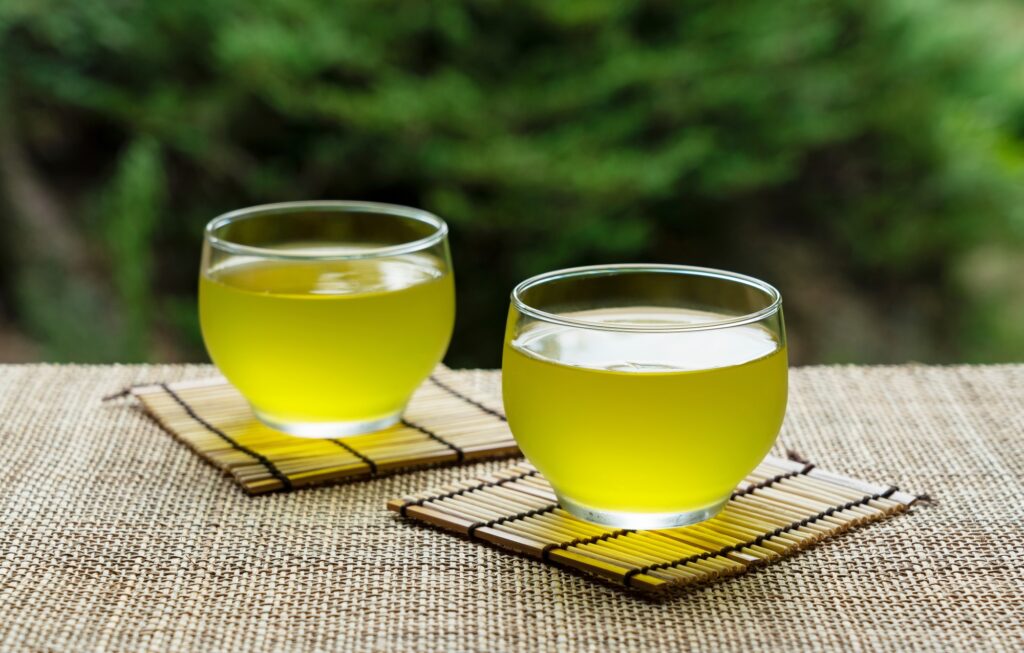
Green tea is a beloved beverage enjoyed by millions worldwide for its delicate flavor, soothing aroma, and numerous health benefits. However, a common question that arises is whether green tea contains caffeine, and if so, how much. Understanding the caffeine content in green tea is crucial, as it can impact our overall well-being and the way we incorporate this versatile drink into our daily lives.
What is Caffeine and How Does it Affect Our Bodies?
Caffeine is a naturally occurring stimulant found in various plants, including coffee beans, cocoa beans, and tea leaves. When consumed, caffeine works by blocking the action of adenosine, a neurotransmitter in the brain that typically promotes feelings of sleepiness. This blockage leads to an increase in the activity of other neurotransmitters, such as dopamine and norepinephrine, resulting in heightened alertness, improved mood, and enhanced cognitive function.
The effects of caffeine can vary from person to person, depending on factors like age, body weight, and individual sensitivity. In moderate amounts, caffeine can provide a boost of energy, improve focus and concentration, and even enhance physical performance. However, excessive consumption can lead to side effects like jitteriness, anxiety, insomnia, and even heart palpitations.
Does Green Tea Have Caffeine?
The short answer is yes, green tea does contain caffeine. However, the amount of caffeine in green tea is generally lower compared to other caffeinated beverages, such as coffee or black tea. This is because the caffeine content in green tea is influenced by various factors, including the specific tea variety, growing conditions, and processing methods.
How Much Caffeine is in Green Tea?
The caffeine content in green tea can vary significantly, ranging from approximately 24 to 45 milligrams per 8-ounce (240 ml) cup. To provide a more comprehensive overview, here’s a table outlining the average caffeine content in different types of green tea:
| Green Tea Variety | Caffeine Content (per 8 oz/240 ml) |
|---|---|
| Sencha | 34-38 mg |
| Matcha | 35-70 mg |
| Gyokuro | 40-60 mg |
| Bancha | 24-45 mg |
| Gunpowder | 25-35 mg |
It’s important to note that these values are approximate and can be influenced by factors such as brewing time, water temperature, and the specific cultivation and processing methods used.
Factors that Affect the Caffeine Content in Green Tea
Several factors can influence the caffeine content in green tea, including:
- Tea Variety: Different cultivars and processing methods can result in varying caffeine levels. For example, shade-grown green teas like Gyokuro tend to have higher caffeine content compared to sun-grown varieties.
- Growing Conditions: The climate, soil, and elevation where the tea plants are grown can affect the caffeine content. Teas grown in cooler regions or at higher altitudes often have higher caffeine levels.
- Harvest Time: The time of year when the tea leaves are harvested can also impact the caffeine content. Early spring harvests, known as “first flush” teas, typically have higher caffeine levels compared to later harvests.
- Processing Techniques: The specific processing methods used to produce green tea, such as steaming, pan-firing, or roasting, can influence the final caffeine content.
- Brewing Method: The way the tea is brewed, including factors like water temperature, steeping time, and the amount of tea leaves used, can affect the caffeine extraction and the final caffeine concentration in the cup.
Different Types of Green Tea and Their Caffeine Levels
As mentioned earlier, the caffeine content in green tea can vary depending on the specific variety. Here’s a closer look at some popular green tea types and their typical caffeine ranges:
- Sencha: A classic Japanese green tea, Sencha generally contains 34-38 mg of caffeine per 8-ounce (240 ml) cup.
- Matcha: A finely ground, powdered green tea used in the traditional Japanese tea ceremony, Matcha can contain 35-70 mg of caffeine per 8-ounce (240 ml) serving, depending on the quality and preparation method.
- Gyokuro: A high-quality, shade-grown Japanese green tea, Gyokuro typically has a caffeine content of 40-60 mg per 8-ounce (240 ml) cup.
- Bancha: A Japanese green tea made from older, larger leaves, Bancha generally contains 24-45 mg of caffeine per 8-ounce (240 ml) serving.
- Gunpowder: A Chinese green tea with a distinctive rolled leaf appearance, Gunpowder has a caffeine range of 25-35 mg per 8-ounce (240 ml) cup.
It’s important to note that these values are approximate and can vary based on the specific tea, brewing method, and other factors mentioned earlier.
Health Benefits of Caffeine in Green Tea
While the caffeine content in green tea is generally lower than in other caffeinated beverages, it still offers a range of potential health benefits:
- Improved Mental Focus and Alertness: Caffeine in green tea can help enhance cognitive function, improve concentration, and boost mental alertness.
- Enhanced Physical Performance: Moderate amounts of caffeine can increase energy levels and improve physical endurance, making it beneficial for athletes and active individuals.
- Antioxidant Properties: Green tea is rich in polyphenols and other antioxidants that can help protect the body against oxidative stress and reduce the risk of chronic diseases.
- Potential Weight Management Support: Some studies suggest that the combination of caffeine and catechins (a type of polyphenol) in green tea may contribute to increased fat burning and improved weight management.
- Reduced Risk of Certain Diseases: Consuming green tea, including its caffeine content, has been associated with a lower risk of conditions like type 2 diabetes, certain types of cancer, and neurodegenerative diseases.
Side Effects and Considerations of Consuming Caffeine in Green Tea
While the caffeine content in green tea is generally lower than in other caffeinated beverages, it’s essential to be mindful of individual tolerance and potential side effects:
- Sensitivity and Tolerance: Some individuals may be more sensitive to the effects of caffeine, and consuming green tea in excess can lead to jitteriness, anxiety, or insomnia.
- Pregnancy and Breastfeeding: Pregnant or breastfeeding women should consult with their healthcare providers regarding the appropriate caffeine intake, as excessive consumption may have potential risks.
- Interactions with Medications: Caffeine can interact with certain medications, such as stimulants, antidepressants, and blood thinners. Individuals taking prescription drugs should discuss their green tea consumption with their healthcare provider.
- Hydration and Mineral Balance: Caffeine can have a diuretic effect, leading to increased fluid loss and potential imbalances in electrolytes like calcium, magnesium, and potassium.
- Sleep and Circadian Rhythm: Consuming green tea with caffeine too close to bedtime can disrupt sleep patterns and negatively impact the body’s natural circadian rhythm.
How to Reduce Caffeine Content in Green Tea
For individuals who are sensitive to caffeine or prefer to limit their intake, there are several strategies to reduce the caffeine content in green tea:
- Brewing Time: Reducing the steeping time can lower the caffeine extraction. Aim for a shorter brewing time, typically 1-2 minutes.
- Water Temperature: Using cooler water, around 160-180°F (70-82°C), can result in less caffeine extraction compared to hotter water.
- Leaf-to-Water Ratio: Using a lower ratio of tea leaves to water can decrease the overall caffeine content per cup.
- Decaffeinated Green Tea: Opt for decaffeinated green tea varieties, which have undergone a specialized process to remove a significant portion of the caffeine.
- Herbal Green Tea Blends: Explore green tea blends that incorporate other herbs or ingredients, as they may have a reduced caffeine content.
Making Informed Choices about Green Tea and Caffeine Consumption
Understanding the caffeine content in green tea is crucial for making informed choices about this versatile beverage. By being aware of the factors that influence caffeine levels, the differences among green tea varieties, and the potential benefits and considerations, individuals can better incorporate green tea into their daily lives and enjoy its many health-promoting properties while managing their caffeine intake.






